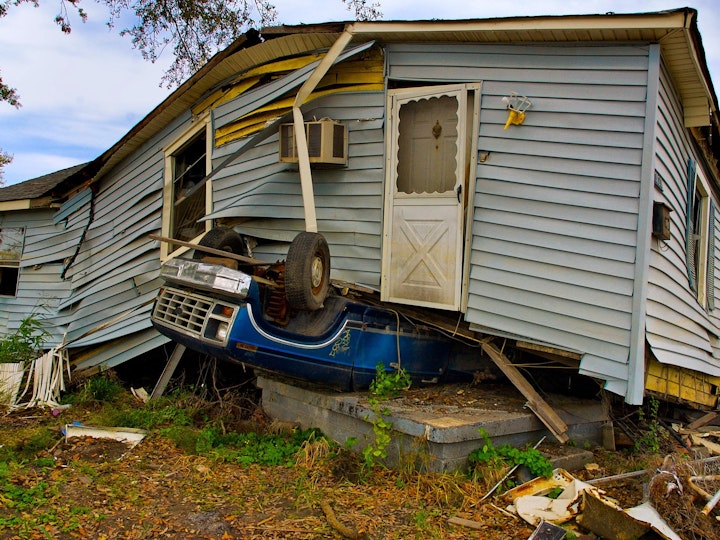UNEP Finance Initiative report calls for better understanding of how climate change impacts real estate values
The report was the result of collaboration between Henley Business School, the United Nations Environment Programme and Schulich School of Business.

Physical climate risk is fundamental and critical to all real estate investors, but there is a lack of information and understanding about how these risks could affect property values in the long-term, a new report from the UN, Henley Business School and Schulich School of Business has found.
The United Nations Environment Programme Finance Initiative (UNEP FI) has released a new report working with partners at the business schools titled, Climate Risk and Commercial Property Values: A review and analysis of the literature.
The research was commissioned to support real estate investors in correlating recent extreme weather events to real estate values and prices and how risk should factor into future projections. It aimed to identify the patterns in the reduction in price of assets and changing behaviour in the real estate market due to acute and chronic climate risk.
Despite the increased concern among investors of the impact of recent extreme weather events such as flooding, hurricanes, rising sea levels and wildfires, the report concluded there is an incomplete picture of the channels through which climate hazard exposure has on asset value and pricing.
The research also found that, although commercial real estate investors may be increasingly aware of physical climate risk when acquiring, developing and upgrading assets, there is only modest evidence as to how commercial real estate markets have, in the past, responded to extreme events.
Overall, the researchers found little information that is available to investors and other market participants which clearly outlines the interaction between climate hazard exposure, market sentiment and asset value and pricing. This has great implications as the nature of physical climate risk is such that values, prices, and investment decisions will increasingly be influenced by actions of lenders, insurers, occupiers, regulators and government and all these parties depend upon good data and information flows.
The report recommends further work in the following areas:
- improving market surveillance
- shaping financial and valuation modelling practices
- strategising for public and private investment planning in local area resilience
- researching to build the evidence base for climate risk analysis and disclosure
The review concludes that not enough is understood about how physical climate risk is currently included in the pricing of assets and how this has impacted the real estate market. The report did find that prices in the past have often ‘bounced back’ from falls caused by extreme events, but this may not continue to happen. Mandatory mitigation requirements from the insurance market and other governance capacities can be critical in helping to provide confidence to investors and mitigate value losses over time. However, the extent to which this protects future asset values in areas subject to climate risk is unknown.
On behalf of the research team from Henley Business School, Professor Sarah Sayce, Professor of Sustainable Real Estate said:
“The timing of this report could not be more crucial: the evidence of climate change is now so real. But we know too little about how it is impacting on the value of our Real Estate assets. We all depend on Real Estate – not just as a place to live and work, but on the role it plays as a home for investment funds on which our pensions and life insurance depend. It is therefore imperative that we understand not just how to build carbon zero assets, to ensure it does not continue to contribute to carbon emissions, but also how to ensure that investors, insurers and governments understand how climate events impact the value resilience of our real assets.”
Professor Jim Clayton, the Timothy R. Price Chair at York University’s Schulich School of Business and Director of the School’s Brookfield Centre in Real Estate & Infrastructure, said:
“Climate change is becoming one of the most important structural forces and risks that long-term investors in all asset classes need to proactively consider in building resilient portfolios. Institutional real estate portfolios with exposure to cities and regions that are increasingly susceptible to climate change impacts face heightened risk. This paper provides a timely review of academic research that indicates climate risk is starting to have a more sustained impact on pricing and on investor decision-making.”
On behalf of UNEP FI, Matthew Ulterino, Property Investment Project Coordinator, said:
“The just released IPCC Sixth Assessment Report offers in stark terms the climatic systems changes already present and those likely to come from humanity’s continued GHG emissions, that physical risk to the built environment is certain to last for centuries at least, and that adaptation needs to be part of the solution. Without question, climate risk will impact value and asset owners and managers need to plan their acquisition and ownership strategies accordingly. We are grateful to the research team for adding to the evidence base and bringing their insights as to how markets have and may react to extreme weather, and how institutions need to shape their capital allocation practices moving forward to generate societal and financial returns.”
The full report can be found here.



